Expert Interviews
We have had the privilege of interviewing many experts in the fields of genetics, epigenetics, developmental biology, reproductive biology, evolutionary theory, history of medicine, endocrine disruption, neuroscience, toxicology and molecular biology. Each researcher brings new perspective to the multifaceted questions of the history, mechanics and role of germline exposures in genetic change and human development.
New interviews are being posted every month.

Epigenetics: Evolutionary Theory in Transition
Eva Jablonka, PhD, Professor, Cohn Institute for the History and Philosophy of Science and Ideas, Tel Aviv University, Israel "During [embryogenesis] major changes occur in, for example, DNA methylation and in other aspects of chromatin marking. When things are happening during these periods, they can have long-term repercussions." |

Gene-Environment Interaction in the Etiology of Autism Spectrum Disorders
Alycia Halladay, PhD, Senior Director of Environmental and Clinical Sciences, Autism Speaks "We literally went through a period of time where it was either genetics or the environment.... [W]hat's been missing in these studies is really an understanding of how the genetics have worked with environmental exposure." |
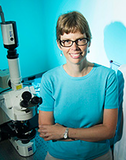
The Role of Epigenetics in Autism Spectrum Disorders
Janine LaSalle, PhD, Professor, Center for Neuroscience, UC Davis "[P]eople are realizing that genetics alone can't explain autism risk, and that there is compelling evidence for a lot of the genes involved in autism either being epigenetic players themselves or being regulated by epigenetics." 
Environmental Exposures and Our Dynamic Epigenome
Linda S. Birnbaum, PhD, Director of the National Institute of Environmental Health Sciences (NIEHS) "Air pollution can cause epigenetic changes for example. Hormonally active chemicals like phthalates and BPA, chemicals like tributyltin, dioxin, PCBs, flame retardants. A wide range of chemicals can cause epigenetic modification." |

Prenatal Stressors and Epigenetics in the Development of Behavioral Disorders
Tracy Bale, PhD, Professor Neuroscience in Psychiatry, University of Pennsylvania "Over the last five to ten years, the plasticity has become the novel piece of epigenetics — the fact that there are epigenetic mechanisms that are constantly responding to the environment." 
How Exposures Can Modify the Epigenome
Dana Dolinoy, PhD, Assistant Professor in Environmental Health Sciences, University of Michigan "If these chemicals impact the epigenome, this can change the programming in the germ line and potentially be transferred across generations. If so, with endocrine disrupting chemicals, you aren’t just impacting the person exposed, you are impacting their children and grandchildren, and possibly their great grandchildren." |
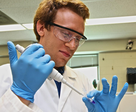
Epigenetic Effects of Prenatal Alcohol Exposure
Ben Laufer, Epigeneticist, Western University, Canada "I can say with high confidence that molecular aberrations are passed on via the epigenome across generations where they can produce significant differences in neurodevelopment." 
The Effects of Endocrine Disrupting Chemicals
Carol Kwiatkowski, PhD, Executive Director and Senior Research Associate, The Endocrine Disruption Exchange "One key characteristic of hormones is that they work at extremely low levels. Very tiny amounts of hormones have effects in the endocrine system. Some hormones work at the level of parts per trillion—this is like one drop of water in 20 Olympic size swimming pools." 
Germline Effects of In Utero Exposure to Nicotine
Pradeep Bhide, PhD, Professor of Developmental Neuroscience, Florida State University “Exposure of the germline to nicotine produces epigenetic changes in the germline... they are permanent, and passed from one generation to the next.” 
Ascertaining Germline Risks of Chemical Exposures
Carole Yauk, PhD, and Francesco Marchetti, PhD, Research Scientists, Health Canada, and Adjunct Professors, Carleton University "We think it’s important to understand whether germ cells respond differently from somatic cells to a chemical exposure because a change in the genome in the germ cell can be transmitted to the next generation and permanently contribute to the population gene pool." 
How Epigenetics Influences the Risk of Disease
Susan Murphy, PhD, Associate Professor and Director of the Epigenetics Research Laboratory, Duke University Medical Center “Probably the most important aspect of germline epigenetic vulnerability is that it is at its highest during pregnancy. This vulnerability occurs within the cells that will form the gametes.” 
Developmental Origins of Disease
Jerry Heindel, PhD, National Institute for Environmental Health Sciences "If it’s a gene that is impacted by the environmental chemical, people put the genetic cause first and view the environmental consideration as a secondary component of the problem. Research might show that a genetic component counts for only 50 or 30 percent of all cases of disease, but we never ask about the remaining 50 or 70 percent." 
The History of Prenatal Pharmaceutical Use
June Reinisch, PhD, Prenatal Development Project, Denmark, and Director Emerita, The Kinsey Institute for Research in Sex, Gender and Reproduction Coming soon 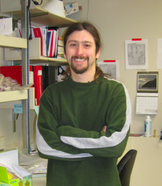
Persistent Epigenetic Consequences of Critical-Window Exposures
Carlos Guerrero-Bosagna, PhD, Linkoping University, Sweden "An old criticism of our work is that we used pharmacological doses for our experiments. It is true, but it was necessary to understand that the epigenetic transgenerational process is possible.... the next obvious question is exactly that: what are the epigenetic transgenerational effects of these compounds that we purposely take in pharmacological doses?" |
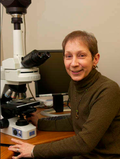
Effects of Exposures on Development of Oocytes
Patricia Hunt, PhD, Professor, School of Molecular Biosciences, Washington State University "[T]here are at least three distinct windows of egg development that appear vulnerable to the effects of BPA; we see effects in adult females exposed prior to ovulation and in fetuses exposed in the womb during two distinct stages of development." 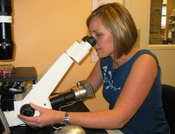
Epigenetics of Human Germline Development
Amander Clark, PhD, Department of Molecular, Cell and Developmental Biology, UCLA "I've been fascinated to try and unlock the secrets of the germline for many, many years now as I think the genetic and epigenetic health of our germline cells is critical to the health of our children." 
Multigenerational Effects of Endocrine-Disrupting Molecules
Emilie Rissman, PhD, Professor of Biochemistry & Molecular Genetics, University of Virginia "I would stress that our data show that in mice, social interactions, as a class of behaviors, are disrupted by transgenerational exposure to 'human-like' levels of BPA." 
How Environmental Factors Can Change the Epigenetics of the Germline
Mirella Meyer-Fica, PhD, Research Assistant Professor, Utah State University "[E]xposure during a pregnancy will 'hit' three generations at the same time, since in addition to the mother, and the body of the developing fetus, the fetuses’ germ cells are already present and get exposed as well. Even more, depending on when exactly during development the exposure occurs, these cells are extremely vulnerable." 
Imprinting, Gene Regulation, and Early Development
Randy Jirtle, PhD, University of Wisconsin-Madison, School of Medicine and Public Health 
Autism Genetics Overview
Wendy Chung, MD, PhD, Columbia University School of Medicine “Maybe there’s overlap in those pathways among the genetic causes, the epigenetic causes, the environmental causes. I hope to make some sense of this downstream, across the etiologies.” 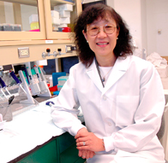
Hormones, Hormone Disruptors and Regulation of the Epigenome
Shuk-Mei Ho, PhD, University of Cincinnati Coming soon 
Connecting Exposures to Epigenetic Effects
Cheryl Walker, PhD, Welch Chair and Director, Institute of Biosciences & Technology, Texas A&M University |
